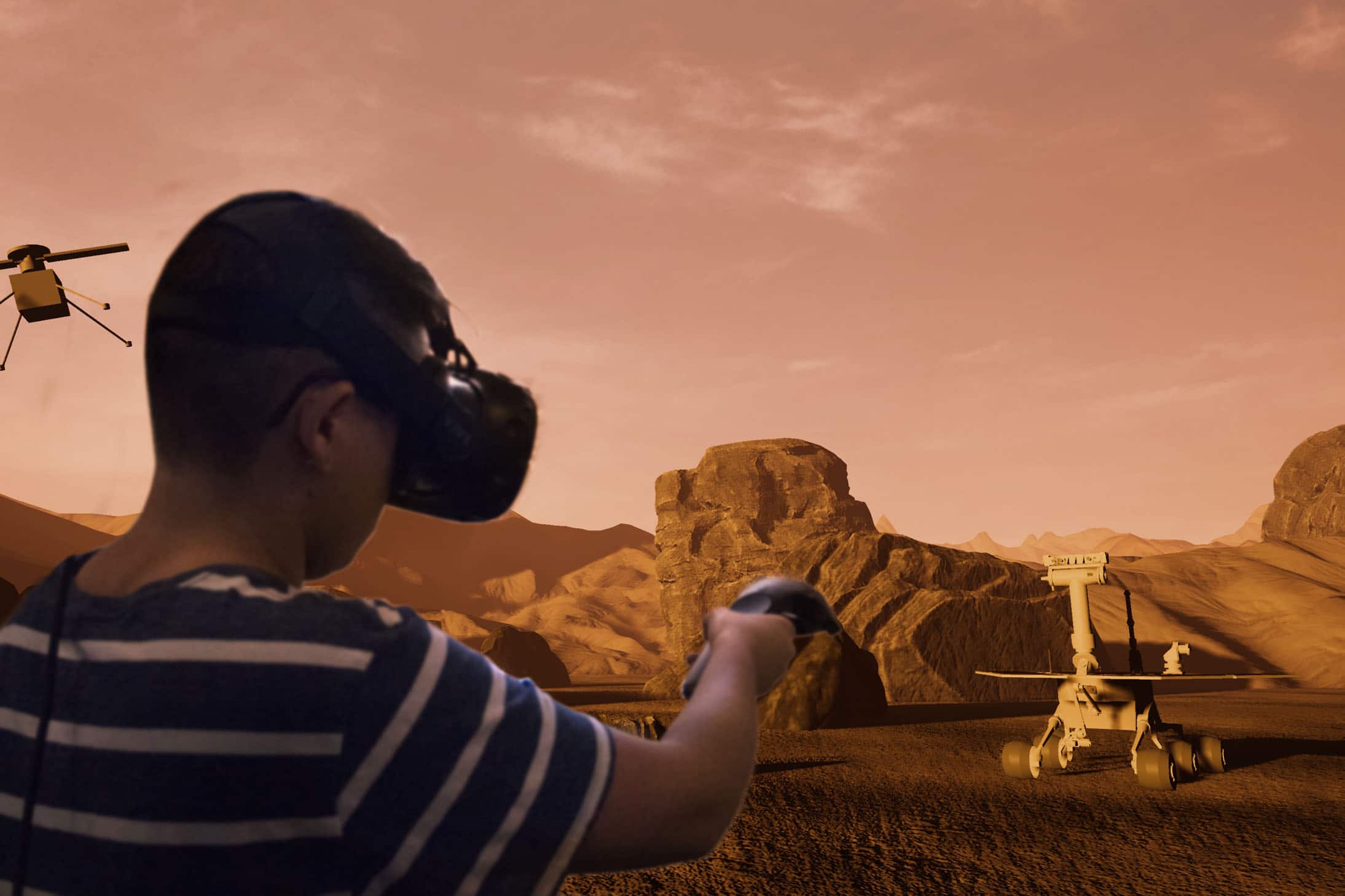
NAU astrophysics researchers and the Interactive + Immersive Virtual Reality Lab (IVR) are collaborating to propose new methods to explore the surface of Mars.
Current rover science is limited to a semi-autonomous probe with on-board instruments to sample and send data back to Earth. While they have yielded enormous amounts of data, scientists have not been able to interpret all of it.
“Rovers are currently very limited, in terms of how much of an area they can see,” assistant professor of computing programs and earth sciences Temuulen “Teki” Sankey said. “We have no idea what goes on outside of the rover’s pathway.”
Mark Salvatore, assistant professor of astronomy and planetary geologist, said drones and virtual reality (VR) technology could “give us a greater sense of scale, depth perception and relativity, all of which will save time.”
Using multi-band laser scanners, a drone can scan the surface of a terrain, and a 3D reconstruction of the terrain can be created to explore it in VR, allowing researchers to explore the planetary geology alongside the robotic explorer.
“Utilizing multispectral data, we can detect differences in plant moisture and soil moisture,” Sankey said. “The drone can scan those areas, without having a rover drive around all over the place.”
The IVR Lab is expanding its research across campus and hopes to contribute to NAU’s goal of becoming a top-tier research university.
For more information about current research projects and student opportunities, visit IVR’s website.
Source: Scientists propose exploring Mars with drones and virtual reality at NAU – NAU News : NAU News